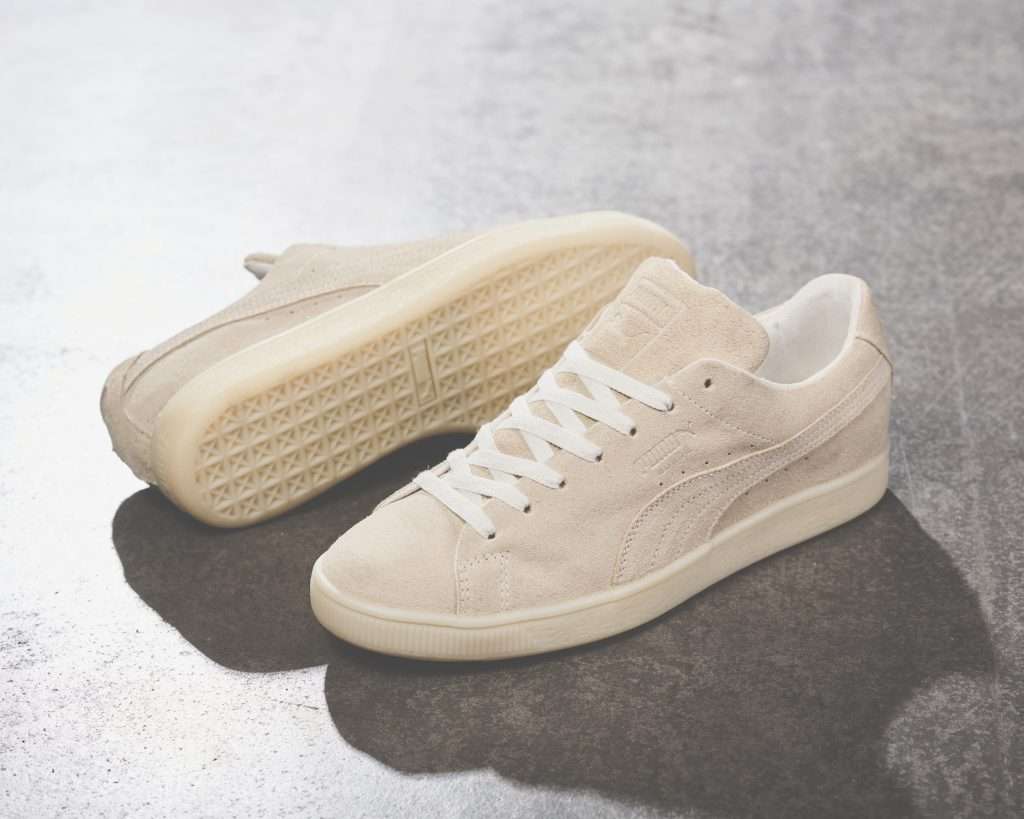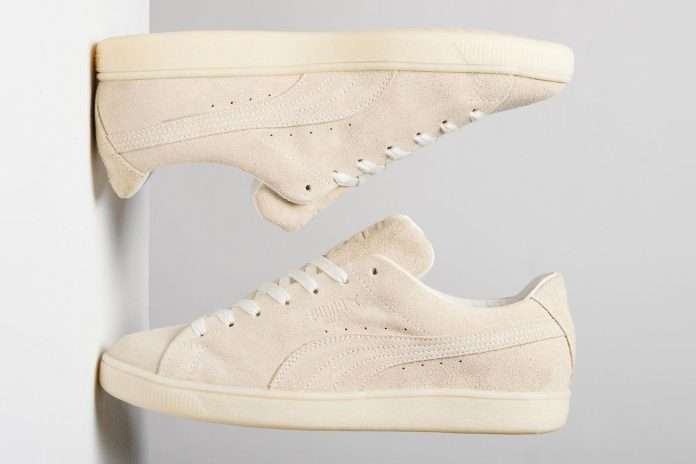As it works toward its sustainability goals, Puma just composted suede sneakers. Could this be a solution for the problematic leather and suede industries?
In the late 18th century, French nobility couldn’t get enough of the highly prized Swedish leather. While conventional leather had been popular for centuries, Swedish leather crafters used the inner skin of the hides for gloves. The result was gloves that were softer and more flexible and preferred by women. The word “suede” comes from the French “gants de Suede (“gloves of Sweden”).
It didn’t take long for this textile to find market opportunities outside of the fingers of French nobility, though. Soon, anything made from leather — bags, shoes, jackets, and even furniture — was also being made from suede.
That holds today, too. The global leather and suede market was worth $419 billion in 2022 and is growing at a CAGR of 6.5 percent. As countries like India and China see income levels rise, demand for leather and suede products rises accordingly.
However, like leather, suede’s environmental impact raises significant concerns in the fight to slow climate change. The production of suede is resource-intensive, requiring large amounts of water and energy. The tanning process, crucial in converting raw hides into suede, involves harmful chemicals like chromium, which can contaminate water sources. This chemical runoff poses a risk to tannery workers and nearby communities, as well as aquatic life and the broader ecosystem.

Animal farming for suede contributes to deforestation and habitat loss, as land is cleared for grazing or feed production. The greenhouse gas emissions from livestock, particularly methane, also contribute to climate change.
Furthermore, the disposal of suede products is problematic. Unlike natural materials, suede doesn’t decompose easily, adding to landfill waste. And while non-animal leather and suede are being used in more applications than ever before, there’s still significant demand for conventional suede — and that poses big problems not just in production, but for landfills when products reach their end of life.
But sportswear giant Puma may have a solution. It has unveiled a compostable suede sneaker, marking a significant stride in its sustainable footwear innovations. This revolutionary product is the outcome of the Re:Suede experiment, a two-year research project.
Initiated in 2021, Puma crafted 500 pairs of compostable sneakers made from Zeology-tanned suede, thermoplastic elastomer (TPE) outsoles, and hemp fibers.
Puma embarked on a real-world trial of the Re:Suede sneakers in Germany, where volunteers wore these shoes for six months. This phase was crucial for assessing the comfort and durability of the footwear. Following the wear test, the sneakers underwent a specialized composting process in the Netherlands, conducted by Puma’s partner, Ortessa Group.
“We learned a lot during the Re:Suede trial and how to streamline our industrial composting process to include items that need longer to turn into compost,” said Marthien van Eersel Manager of Materials & Innovations at Ortessa. “While all Re:Suede materials can decompose, the sole of the Re:Suede required more pre-processing and additional time in the composting tunnel to completely break down.”

The composting of the Re:Suede sneakers involved shredding and mixing the shoes with other organic household waste, then placing them into a composting tunnel. In this environment, they were exposed to nutrient-rich leaching water from previous composting cycles. This water, naturally heated by biological activity, and controlled air circulation within the tunnel, facilitated the breakdown of the materials.
After about three and a half months, the components of the shoes that were small enough (less than 10mm) to pass through a sieve were transformed into Grade A compost, adhering to the Netherlands’ agricultural standards. Any remaining materials continued in the composting process until they reached the desired size.
Anne-Laure Descours, Chief Sourcing Officer at Puma, reflected on the experiment’s findings. “While the Re:Suede could not be processed under the standard operating procedures for industrial composting, the shoes did eventually turn into compost,” she said.
Based on feedback from participants who wore the Re:Suede for six months, Puma plans to refine the design. The company aims to enhance the overall fit by introducing a new material pattern for the upper and the sock liner, focusing on improving comfort.
The Re:Suede experiment is a program within Puma’s “Circular Lab,” an initiative dedicated to shaping the future of the company’s circularity programs. This project, along with the innovative polyester recycling program Re:Fibre, represents Puma’s commitment to environmental sustainability and innovation in the sportswear industry.
According to Descours, part of the future of the program could include a takeback scheme for suede materials to re-use and compost as needed. “We will continue to innovate with our partners to determine the infrastructure and technologies needed to make the process viable for a commercial version of the Re:Suede,” including a takeback scheme, in 2024,” she said.
Related on Ethos:


